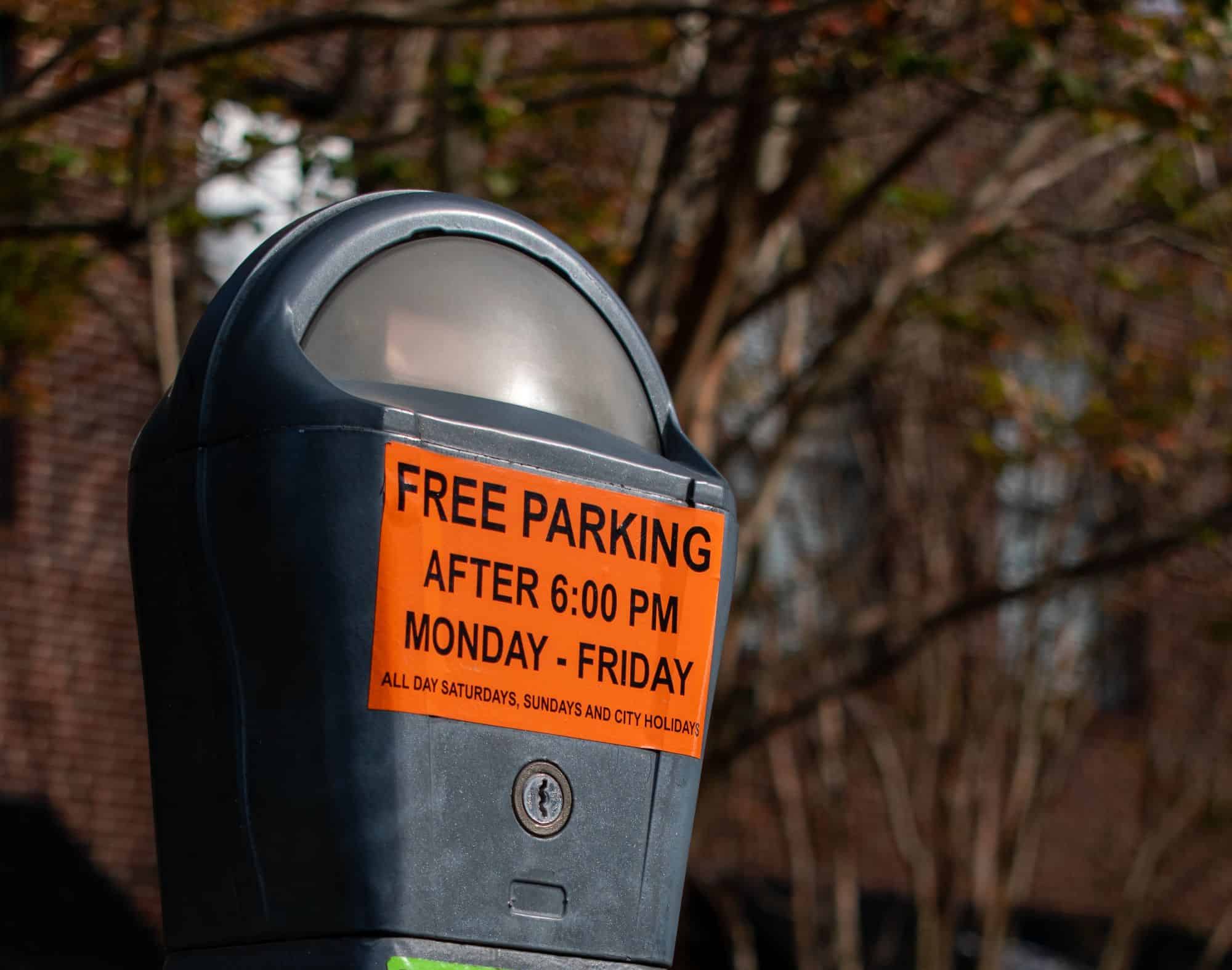Moving Away From Free Parking to a Reasonable Permit

Around the world, momentum is developing behind endeavors to bump out substantial parking garages, curbside parking, and carports for administrations and infrastructure for people on foot, cyclists, and public transportation. Yet, there are no sufficient efforts to encourage people to move away from free parking to a proper permit to help manage parking spaces and protect vehicles.
Free Parking is a Problem?
People are saying free parking makes it harder for those willing to pay to park to find a parking spot. Governments and organizations must ensure that they eradicate free parking and bring in a culture that recognizes proper parking permits to help those who need the service get a spot. If this happens, not only will the streets be better for businesses, but the streets will be better for us as road users.
The city of Toronto has made progress in several areas in recent years. That is evidenced by their reduction of illegal parking and ticketing of illegal street parking within commercial spaces. The city has also shifted some of the responsibility to landlords to ensure that their tenants keep their off-site parking lots in shape to ensure that residents are not creating a “parking wasteland” in their neighborhoods. The city has also increased the number of parkades and other parking options on the city’s outskirts, so people don’t have to travel as far.
There are significant methodologies behind these changes in how we manage parking spaces. To address parking more effectively and efficiently, a shift from relying on ticketing and fines for people who break the rules around parking spaces is called for. There is a wide acceptance that tickets or fines are ineffective in encouraging people to comply with regulations about parking their cars voluntarily. For example, if there are 120 tickets issued in one year, it is more likely than not that a significant portion of those 120 tickets was given to legitimate street users.
Toronto, Ontario’s Strategy
Under the new strategy, Toronto would look to use a combination of the following:
- Permits will be offered for off-street parking. The city currently employs an “off-street permit” (OSP) model for on-street parking in certain areas. Permits for off-street meters or lots would work as a similar system. Off-street permits would be valid for one or more years and be issued by the municipality that manages them. Permits will not be transferable; however, only one person could operate each space. Vehicles parked without permits through misuse and nonpayment would incur fines based on vehicle size and time parked there.
- The new permit system would be made available for the first time in the “Guild Park” and “Guild Inn” area, which has a large residential population. The municipality would require that a minimum number of parking permits are bought by buyers of new homes or commercial space in the area. The city would compensate residents who sell their property with the cost to purchase a permit. Then, if those residents choose to relocate, they will have the option to sell their permits back on the market.
The Residential Parking Permits (RPPs) are city-wide and apply in all residential areas across Toronto regardless of whether a local community association is responsible for their administration and enforcement of on-street parking bans. Likewise, in the early part of the year, the city of Bend implemented a new parking permit system in the Old Bend neighborhood, near Delaware and Florida avenues. According to the city’s parking services manager, Tobias Marx, residents of Old Bend and the guests, especially those staying in rental properties, will have the option of paying for parking permits that cost between $15 and $30 per year. This development was due to the city’s increased growth, which has rendered some old-timers in the town without parking spaces.
UCLA Economist Daniel Shoup “The High Cost of Free Parking,” published in 2005, also advocated for why we should move away from free parking. The author enunciated why precisely he thinks free parking is an impractical notion. His thoughts have begun to impact strategy: a few urban communities, including San Francisco, have as of late started exploring different avenues regarding the variable, market-set pricing plan he thinks bodes well. Also, recent studies have affirmed that it eliminates cruising time and gridlock.
Besides, at OPS COM, we polled many clients who want their parking space well managed. As such, they are willing to move from free parking, which is unsafe and not well organized, to a proper parking permit that will manage their parking space and make the process easier for everyone. The premise is that people like their parking but are willing to pay a reasonable amount to be well-managed. Most of our customers are eager to quickly pay for their parking management upgrade if their users paid $10/year for a permit as long as it’s well managed.
Basically, what are the disadvantages of free parking permits, and how might this affect everyone?
Disadvantages of free parking permits
What are the disadvantages of free parking permits, and how might this affect everyone?
Free parking isn’t good for the public
Parking spaces are expensive to build, be it public or to belong to an organization. Every on-street parking area is valued at $1,750 to make and $400 to maintain annually or more, depending on the location. The problem with this is that the maintenance of these parking spaces gets paid by taxpayers, who are usually willing to drop some cash for a spot to park. When the parking area is public, it makes it harder for these said individuals to get a return for that tax paid. Usually, the free street parking would be flooded by new residents or guests.
Free parking forces people to cruise for space
In numerous metropolitan regions with high parking demands, when we sponsor its expense and freeze its precise cost at nothing, there is a much more considerable number of individuals who need it than spots accessible. Without meters to invigorate turnover, individuals will, in general, take spots and clutch onto them the entire day. Therefore, we burn through our time cruising, searching for vacant open space, and increasing carbon emissions from our cars.
It inspires car-based development that hurts the poor
The principal contention with the expectation of free parking is that charging for it is a regressive tax since it excessively influences individuals with lower earnings. Spending on parking addresses a higher level of their budget. In any case, at present, individuals who don’t own vehicles are lopsidedly lower-income earners. Each duty dollar they spend that goes towards parking spaces is a regressive tax than what might be exacted on car-owning individuals on the off chance that they always need to pay for parking.
A flawed management
Free parking spaces are usually never managed. In most cases, they are abandoned and cars parked are at the owner’s risk. Who wants to park their vehicles in a location where they are unsure about the security or meet their cars there when they get back?
Manual work for the parking lot workers
Likewise, free parking makes it impossible to allocate funds to move from a manual parking management process to an adequately managed parking lot. There will be limited guards or workers working the spaces, so there will not be proper process management. Everything has to be done manually, from spot allocation to license verification, making the process very stressful and cumbersome.
Slow process
Like we earlier mentioned, because there are not enough people to cater to these spaces or a computerized system to manage parking spaces, the process is usually prolonged. This can cause the driver to stay in parking queues for minutes and sometimes hours before they eventually find a spot. With a computerized parking management system, space allocation, and automation can do license checking before the driver arrives at the lot for check-in.
Inefficient and leaving a trail of paper
With several excel files and papers keeping tabs on a car parked, it can be a daunting task for the person in charge of the space. This is not the case with a paid parking permit, as it allows for a modern solution to manage the parking space effectively. A system allows the community or organization to analyze their parking space and find new strategies to improve them.
Why you should consider moving to a low-cost annual permit
A low-cost annual parking permit provides more solutions than you can imagine. No one wants to manually operate a parking space these days when modern solutions like our OperationsCommander cloud-based application make the process easier for everyone. Charging for parking ensures free slots by diminishing interest and a well-managed parking space while drivers invest less energy circumnavigating for spots. As we earlier stated, a large number of our clients want their parking space well managed. As such, they are willing to move from free parking, which is unsafe and not well organized, to a proper parking permit that will operate their parking space and make the process easier for everyone.
So, what is the significance of a low-cost parking permit scheme?
No more lineups
Drivers no longer have to queue to get a spot as the parking management system enabled by a low-cost parking permit allows allocating spaces even before the driver arrives at their location. Spots are allocated based on need and first-come, first-serve. Besides, the system tracks the cars until they leave so their space can be assigned to the next vehicle.
In-person registration
With a parking permit, you can register your car or license directly without a third party. A parking management system funded by this permit allows you to register your vehicles without facing the rigorous screening test that usually goes on in unmanaged parking spaces.
Fine payment
A parking management solution funded by a parking permit allows you to pay for parking tickets directly from an app rather than queue at an office. Besides, you will have the option of paying for other fines likewise on the system, making it easier and reducing the amount of time you spend on the road.
Appeals fines
If you are fined, you can appeal that fine if you are positive the penalty was unfair. The system allows you to directly petition the parking authority and explain the situation of things. This wouldn’t have been possible with free parking because you may not know which authority to report to and which steps you need to take.
A full reporting and single database of information
Here’s one of the most crucial features of a parking management solution funded by a parking permit system. The system will help the city or organization manage the space and provide new strategies based on the analysis carried out on the system to help improve the parking space. This solution can make life better for people who use the parking space or create a new parking space if there is a need.
ParkAdmin: A Well-Management Parking Management System
We have parking lot management software to give you the maximum return on your investment from an annual parking permit. ParkAdmin, the OPS-COM parking management software module, takes care of all permitting issues for parking management firms and the government. It offers an entire customizable lot and user type and reduces daily tasks hugely. Regardless of the permit type, either a virtual parking permit or the traditional printed permit, ParkAdmin gives you control over time allotments, virtual lots, and price adjustments and gets you into several vehicle permit associations.
- A Self-Serve Parking Portal
ParkAdmin offers customers a fully self-managed interface, with our cloud-based parking system serving as an online portal for online access, registration, purchase, and parking permit payment. Using such an online model will save you time and increase resource use efficiency. ParkAdmin builds revenue opportunities and improves customer experience for all your clients.
- Temporary Parking Hardware Support
ParkAdmin offers hiccup-free temporary parking via the Text2ParkMe feature and integrates CALE, Flowbird and T2 payment terminals. You can also purchase parking permits for long-term use, and you can do this via the integration of several payment providers. With this, the security and parking officers can operate in a 24/7 model, reducing staff overhead and improving customer experience.
With OPS-COM, parking enforcement is smooth, and you can easily access all the data you need from an Android device. Parking patrol staff get full access to check vehicle plates or monitor vehicles through the LPR (license plate recognition) via a custom system automation.
ParkAdmin helps you create profitability and efficiency
- Setup, track, and inventory permits linked to customer profiles and vehicle
- In the field validation of parking compliance and vehicle details
- Issue and track temporary or hourly parking permits
- Detailed transaction audit logs for data edits and payments
- Limit permit registration access by user type and date ranges
- Multiple real-time parking payment models
- Manage permit prices and parking registration records
- Full data logging and audit tracking
- Automated rollover of permits
Conclusion
Sparing a little cash to have your parking well-managed has more impact on ensuring your cars are secured, and spaces are safe for everyone than you can imagine. As little as $10 annually, you can ensure that a system is in place to ensure that your parking is efficiently managed with the best parking management solution. We have likewise talked about a few cities that have implemented these annual parking permits and see the positive impact on everyone in the town.
At OPS-COM, we can help you achieve that with a ParkAdmin parking management solution. Reach us to us and further explain how this can revolutionize your business or community parking.


